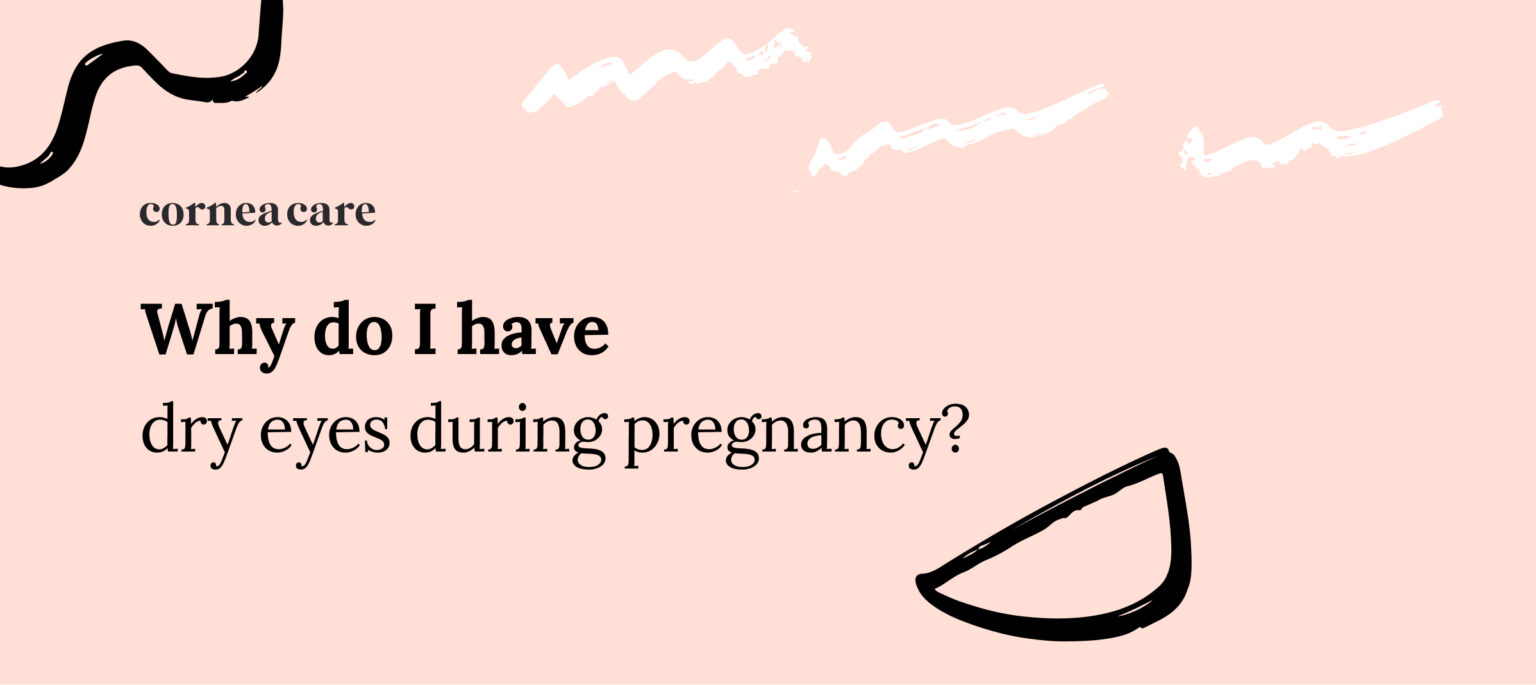Dealing with dry eyes during pregnancy in addition to other prenatal symptoms, can be frustrating. As if back pain, weight gain, water retention and swollen feet weren’t bad enough! The good news is that for most women, dry eyes during pregnancy are temporary and clear up once you meet your little bundle of joy.
Like many pregnancy symptoms, hormonal changes are most often the culprit. If you’re pregnant and concerned about dry eyes, read more to learn the typical symptoms and likely causes, along with simple remedies you can try at home that are safe for you and your baby.
Key Points
- Many women experience dry eyes during pregnancy.
- Hormonal changes usually cause pregnancy-related dry eye symptoms.
- There are safe ways to ease dry eyes during pregnancy in addition to practicing good eyelid hygiene.
What are the symptoms of dry eyes?
Everyone experiences symptoms of dry eyes differently. Keep in mind that these are the same symptoms one can experience with dry eye disease (also known as dry eye syndrome), a more serious eye condition where symptoms begin to interfere with everyday life. Dry eye disease is chronic but treatable.¹
Most people with dry eyes will complain of:
- Dry or watery eyes
- Itchy eyes
- Burning
- Gritty sensation
- Blurred vision
- Light sensitivity
- Blurry vision
- Pain
- Irritation
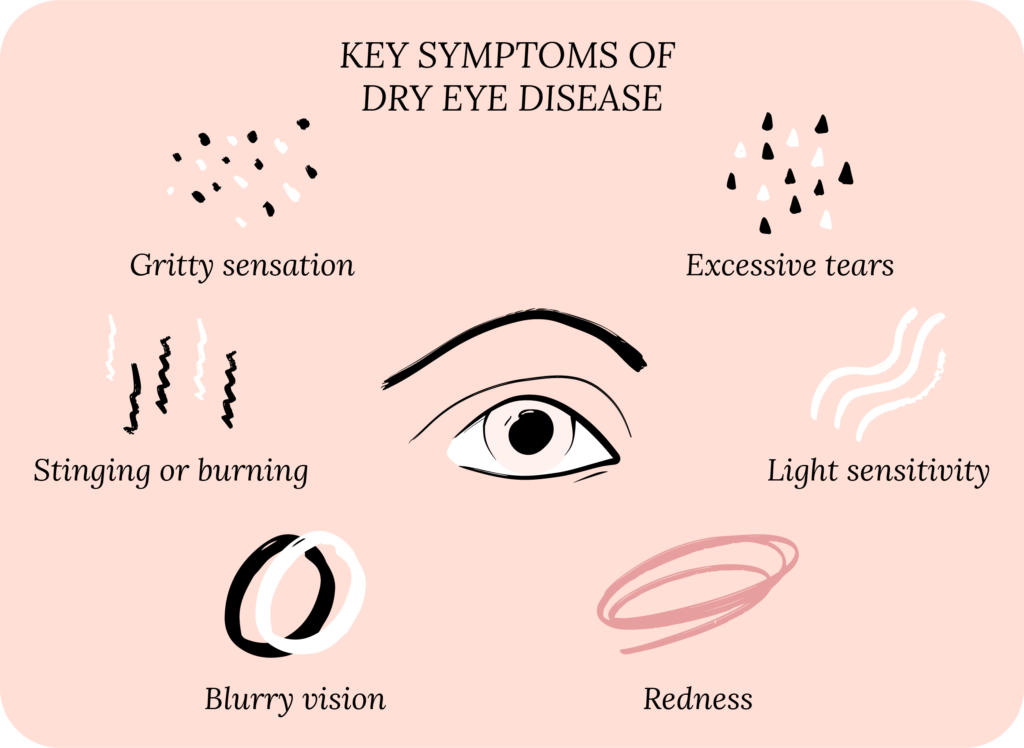
It’s important to note that some pregnant women with high blood pressure (preeclampsia) and gestational diabetes also experience some of the symptoms of dry eyes and other eye problems like floaters.² If you’re concerned, it’s best to always discuss with your OB-GYN.
What are the causes of dry eyes during pregnancy?
Dry eyes are generally caused by your eyes not making enough tears (aqueous deficient dry eye) or your tears evaporate too quickly (evaporative dry eye). Hormonal changes like pregnancy and menopause typically cause both evaporative and aqueous deficient dry eye.³
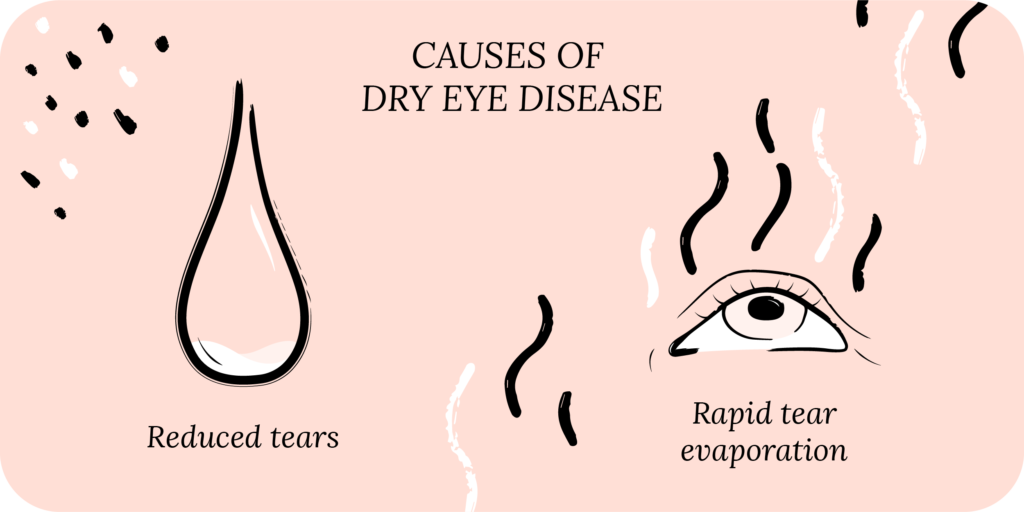
Hormonal changes
Yep, you can blame those pesky hormones for just about everything when it comes to your pregnancy symptoms! Hormone levels during pregnancy affect tear film physiology, leading to dry eye. Researchers believe this may be due to increased immune reaction and destruction of the cells in the tear ducts due to prolactin, the hormone responsible for milk production.⁴
Dehydration
While this may be less common, dry eyes can occur because of dehydration due to nausea and vomiting, which some pregnant women experience in the first trimester (and unfortunately, for some, throughout their entire pregnancy). Our eyes need water to remain lubricated and produce tears, so dry eye symptoms can present when hydration is lacking.⁴
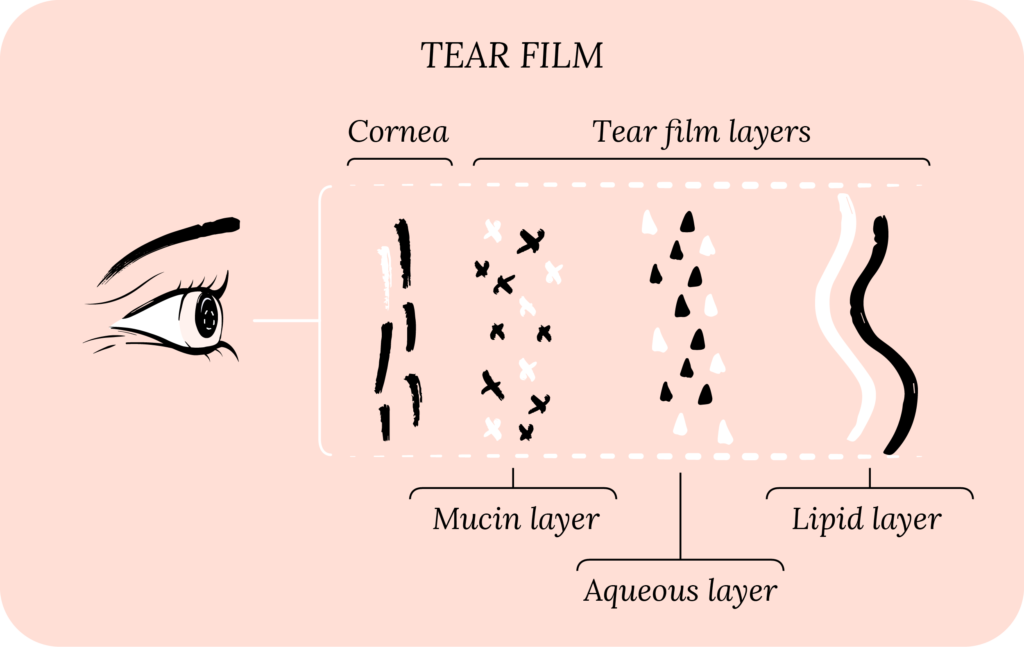
Poor sleep
Most pregnant women start to experience some sleep disturbance during pregnancy, especially in the third trimester. Not only does your growing belly get in the way of finding a comfortable position, but the increased pressure on your bladder can cause you to make multiple trips to the bathroom each night. Combine that with racing thoughts about your upcoming labor, indigestion, and night sweats, and you have a perfect recipe for insomnia.
Unfortunately, this lack of sleep can cause dryness in your eyes. When we sleep, our eyes remain closed and lubricated overnight, allowing us to recover from the daily eye strain.⁵ If we lose sleep, our eyes can’t recover properly, leading to classic dry eye symptoms.
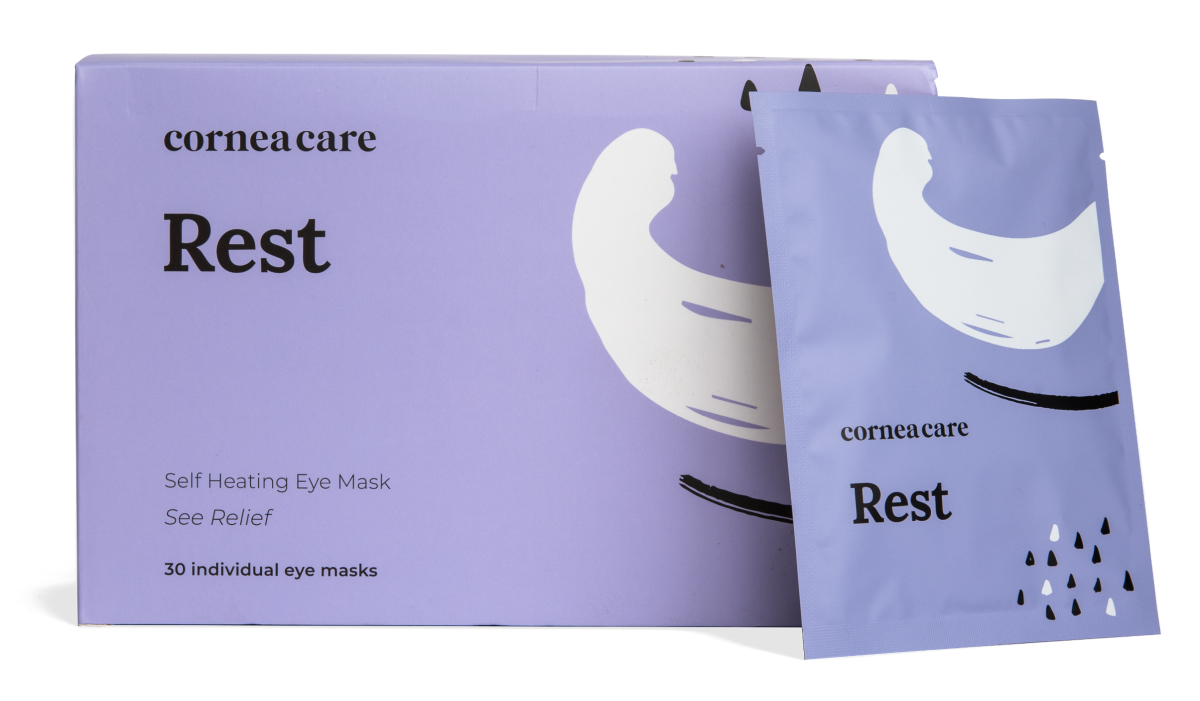
Rest
Warm Compresses
Perfect for eye dryness, fatigue, tearing, and puffiness of the eyelids. Free shipping 📦.
Try today - $30
Safe remedies for dry eyes during pregnancy
Dry eyes during pregnancy are a nuisance, but you can help your eyes by trying a few simple and safe remedies.
Eyelid hygiene
Treating your eyelids to a rejuvenating hygiene plan is great for your dry eyes during pregnancy. It’s also a practice you can continue after the baby is born to keep your eyes safe and comfortable. What is eyelid hygiene exactly?
Because your eyes and eyelids work together to keep your eyes lubricated and protected, it’s important to follow a hygiene routine that includes warm and cold compresses and eyelid wipes. You can make your compresses and eyelid scrubs at home, or use convenient, pre-packaged versions like our line of eyelid hygiene products and plans.
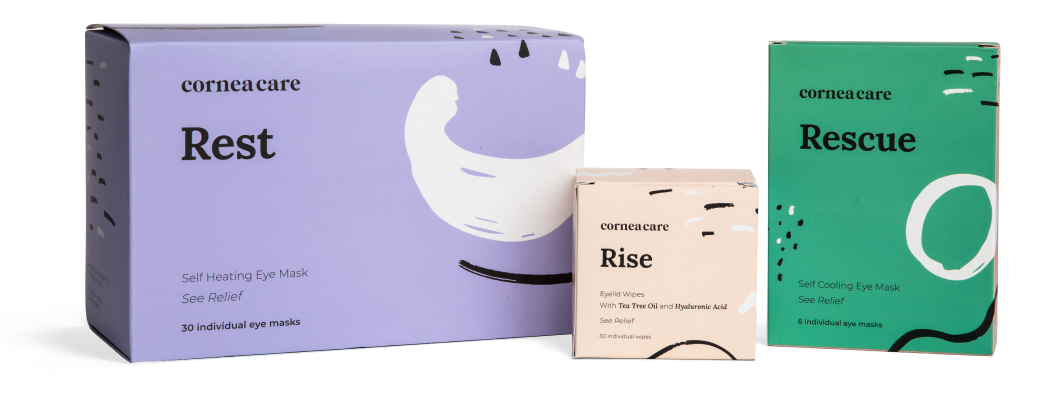
All Rounder
Eyelid Hygiene Plan 3
Perfect for eye dryness, burning, itching, grittiness, crusting/flaking of eyelashes and inflamed/swollen eyelids. Free shipping 📦.
Try today - $60
If you wear contact lenses, be sure to clean them properly each day (or dispose of them if you wear daily contact lenses). Giving your eyes a break from contact lenses by taking them out in the early evening and switching to glasses is a great way to give your eyes a break and allow your tears to replenish naturally.
Drink plenty of water
We’ve mentioned that water is important for tear production. Drinking plenty of water is good for overall health as well! If you can focus on proper hydration throughout the day, you may notice that your eyes start to feel less dry. Don’t say we didn’t warn you about the trips to the bathroom, though!
Use a humidifier
One of the best ways to add moisture to your home is by using a humidifier. Cool mist humidifiers typically work better for dry eyes because warm mist can sometimes generate too much heat, which can end up causing more dryness. If you notice your eyes are primarily dry at night, you can start by using your humidifier in your bedroom. If your eyes are dry and you are home most of the day, consider adding a humidifier to the room you spend the most time in. The larger the room, the larger the humidifier size needed to maximize benefits. Equally important is finding a humidifier with a removable filter that is easy to clean to ensure you aren’t adding mold or debris into the air.
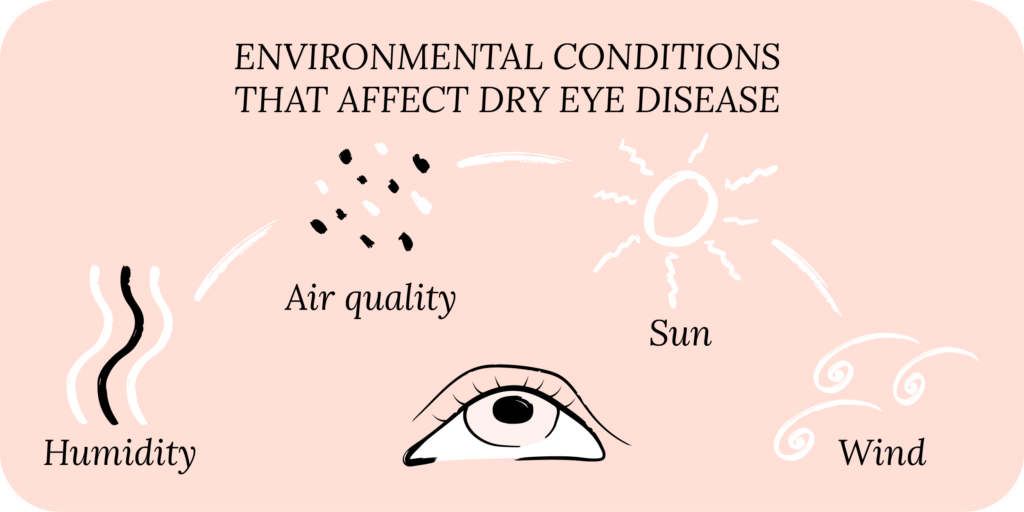
Over-the-counter artificial tears
If you continue to experience symptoms despite the above remedies you may want to consider lubricating with artificial tears. While most over-the-counter eye drops are safe for pregnant women, it’s always best to check with your doctor first. Most eye doctors recommend using eye drops throughout the day, about 3-4x a day and staying consistent with an eye drop for a few weeks before trying another (unless irritation or pain occurs). You can also find artificial tear gels that are best used before bed and tend to provide extra comfort throughout the night.
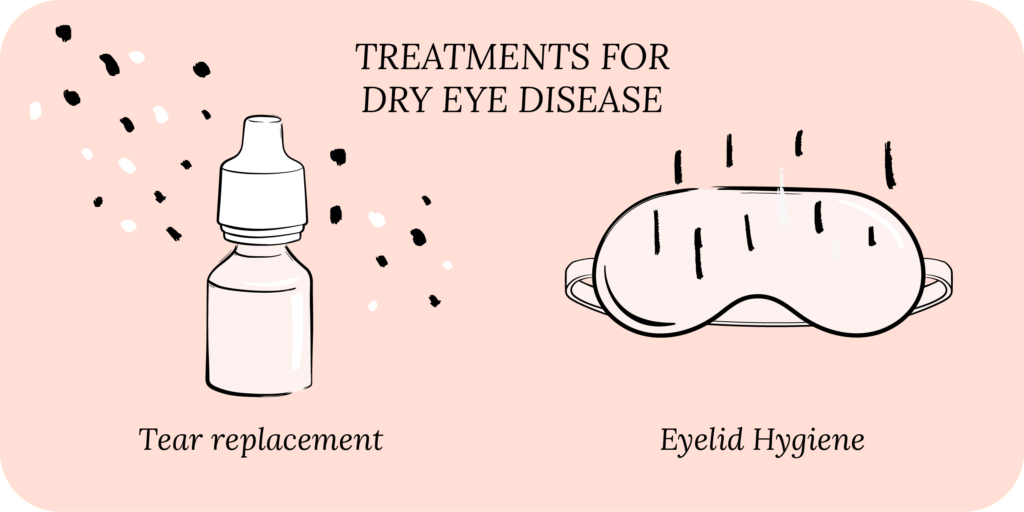
When to talk to your eye doctor (optometrist or ophthalmologist)
If symptoms persist or you experience vision changes, schedule an eye exam to check for other serious eye diseases. While rare, it’s always best to be safe rather than sorry, and address problems before they progress.
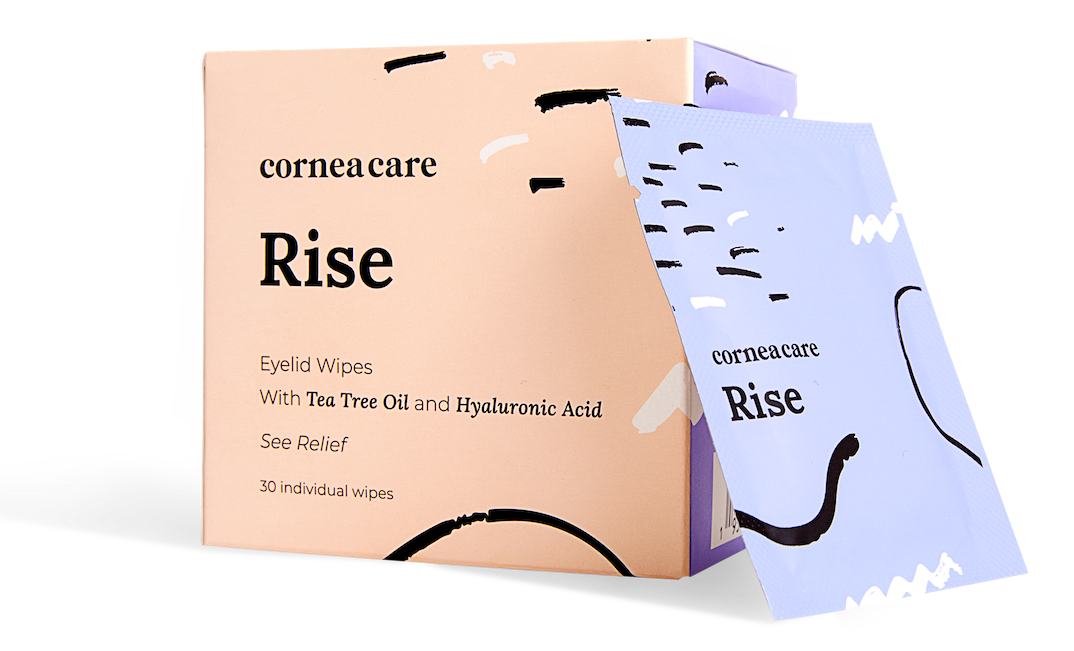
Rise
Eyelid Wipes
Perfect for eye dryness, itching, burning, and crusting/flaking of eyelashes. Free shipping 📦
Try today - $25
Putting it all together
Dry eyes during pregnancy can start to interfere with daily activities if not treated properly. We know moms have so much on their minds and many things to prepare before the baby’s arrival. Don’t let your dry eyes get in the way of this magical time! While most symptoms will subside after the baby is born, some women experience dry eye symptoms even after giving birth into the postpartum period and while breastfeeding. You can blame those lovely pregnancy hormones on this as well, and your body may just take some time adjusting. Additionally, it’s almost impossible to get a good night’s sleep needed for tear replenishment during the first few months of a baby’s life. Eyelid hygiene and proper hydration will be your best friends to ward off dry eye symptoms. Establishing a good eye care routine can greatly improve your symptoms during pregnancy and beyond into motherhood.
What’s next
Learn more about dry eyes in our Dry Eye 101 course. If you’ve already taken it, amazing! Check out more articles in Continuing Education.


